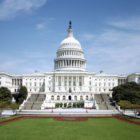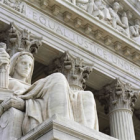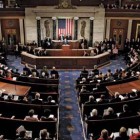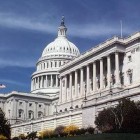
Initiatives emerging from shootings may conflict with efforts to reduce police involvement in school discipline
As the White House considers proposals to allocate federal money for armed guards in schools, prominent school-discipline reform groups have issued a report denouncing the idea as a misguided reaction to the Newtown school shooting. “Placing more police in schools has significant and harmful unintended consequences for young people that must be considered before agreeing to any proposal that would increase the presence of law enforcement in schools,”says an issue brief released Friday by the Advancement Project, Dignity in Schools and other organizations. The Advancement Project, founded in 1999, has offices in Washington D.C. and California, and has worked with school districts and states to adopt alternatives to school suspensions and expulsions. Dignity in Schools is also devoted to working with school districts, advocating fewer school suspensions and less involvement of law enforcement in school discipline. The groups called on the White House and Congress, before they act, to consider how the school-discipline climate changed after more police were introduced to schools in response to the Columbine school shootings nearly 15 years ago in Colorado.









